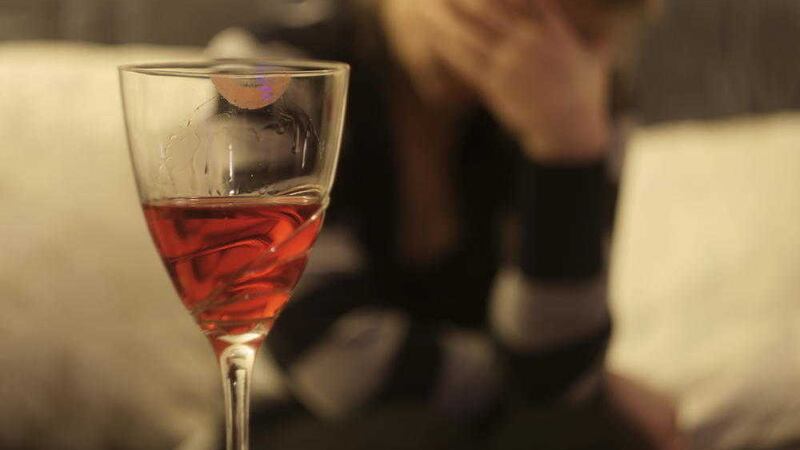CHRISTMAS is meant to be a happy, joyful time when families come together to celebrate but for young people whose parents misuse alcohol it can be a very worrying and vulnerable time.
According to the Department of Health, approximately one in eleven 11-to-18-year-olds in Northern Ireland are affected by parental substance misuse.
Steps to Cope – a support service delivered by local charity Ascert – has appealed for teenagers to come forward in order to help protect themselves from harm and deal with the alcohol-related problems they’re facing at home.
“Caught in the fallout of their parent’s alcohol problem, these young people often feel isolated, alone and confused. That is no environment for a young person to live in. Being a teenager can be hard enough without having to deal with the problems of adults,” says Aislinn Delaney, Steps to Cope service manager.
“Our message to these young people is clear: you are not alone and you are not to blame. Support is available, and talking about the problems you’re facing can help you stay safe and take better care of yourself.”
Launched in 2014, Steps to Cope is a structured support service for young people aged from 11 to 18. The service offers flexible one-to-one support at a time to suit young people, and 24/7 self-help support via an interactive website.
For 16-year-old Belfast girl Louise, life has changed for the better since speaking to a Steps to Cope counsellor.
"I felt like I was the problem, that I was the reason why my dad drank and I wasn’t good enough for him. Now I realise that I can't stop him from drinking, that’s up to him. Nothing I can do can change that. I've learnt to control it a lot better now. I don’t sit and not eat or sleep or cry any more," she says.
For an adult, a small amount of alcohol every so often is fine to drink. However, unfortunately, for some people, they are unable or don’t want to drink small sensible amounts and this can affect young people and families in many arenas of their life including school, home and relationships.
Fiona Steele is one of the project workers in the Steps To Cope team. She explains the need for the service: “No two young people will respond in exactly the same way to parental alcohol misuse. A lot of kids we work with may have bullying issues in school; they often miss school or are late and their concentration is poor due to worry or lack of sleep.
"Roles within the family can change – the young person may be looking after younger siblings or their parent. Or they might have gone the opposite way and have withdrawn from everything and be spending a lot of time outside the home.
“The stress can impact on their physical health through stomach pain, headaches, lack of sleep and reduced appetite as well as mental health and behavioural problems."
She also warns that if the young people do not get any support and and not guided in the right direction with their own lives, these health and social problems can be carried through into their adult lives.
Steps to Cope is aimed at building their resilience to cope with the situation they find themselves in, rather than helping them 'change' their parents' drinking habits.
“Not everybody is able to recognise that their behaviour is an issue, so if the young person tries to help their parent with that, that could lead to conflict for the young person. It’s not their responsibility. We educate the young person around alcohol, change of behaviour and offer them the support to cope and deal with that," says Fiona.
An alcohol addiction is when someone can no longer control when or how much they drink. However, not all parents who drink too much are addicted to alcohol. Some may only drink to excess every so often, or at the weekend, or at special occasions. This so-called 'binge drinking' and can be just as difficult to live with.
"Regular daily use of alcohol might be associated more with neglect and a chronic worry, whereas the binge drinking might concern the child more because of the unpredictability of it – when’s it going to happen next? What’s going to happen next? That could be once a twice a year – but if that is causing the young person an awful lot of stress then that’s what we work with," adds Fiona.
Therefore, the message Steps to Cope is giving this Christmas is no matter how much alcohol your parent drinks, if you feel like you are being affected, it is important to talk to someone about it.
"The first step would be to talk to a trusted adult. It may be a teacher, another family member, a friend's mummy or pick up the phone to ourselves. It’s important for them to know it’s all right to talk, that they are not alone and they are definitely not to blame."
If a parent does want to receive help, the best thing they should do is speak to their GP who can point them in the best direction in their area.
For further support
Young people can contact Steps to Cope campaign online at stepstocope.co.uk or telephone 0800 254 5123 (Monday to Friday, 9am-5pm)
Childline is a free 24-hour counselling service for young people. Telephone 0800 1111
Lifeline is a 24-hour Northern Ireland crisis response helpline for people who are experiencing distress. Telephone 0808 808 8000
Al-Anon have family groups and an Alateen service for 12-17s providing group meetings for those affected by someone’s drinking. See al-anonuk.org.uk.








